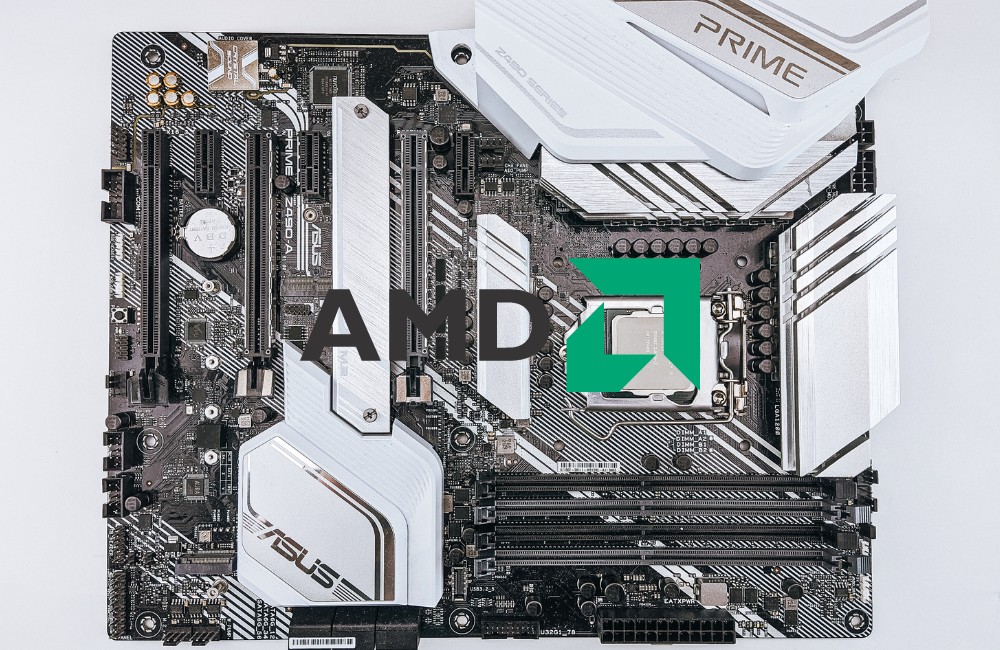How To Choose Processor For Laptops: The inability to construct a laptop like a desktop is a problem that has not yet been resolved. Therefore, you must be aware of the laptop’s capabilities before purchasing it.
Before purchasing a laptop, it is essential to determine which processor best suits your needs. In addition, a laptop’s CPU is more important than a desktop’s because you can upgrade the processor of a desktop at any time, whereas this is typically not possible with a laptop.
Most processors in laptops are soldered to the motherboards. Thus, we have produced a detailed explanation of “How to Choose Processor for Laptop.” This guide will assist you in selecting the most suitable laptop processor for your needs.

Standard Criteria for Selecting a Processor
Processor performance is contingent on a variety of factors. Here, we discuss all the significant factors that affect the processor’s performance.
Who Provides Superior Performance?
This is dependent on the segment of interest. You may be a buyer on a tight budget or seeking a laptop with serious performance.
It is true that when you have money, nothing is difficult, but within a given budget and midrange price range, AMD appears to offer slightly more power.
As a result, their Ryzen 3 and Ryzen 5 mobile CPUs are more powerful than the Intel i3 and i5, while some Ryzen 5 variants are comparable to basic i7s.
Even cheaper options, such as Chromebooks, use both Intel and AMD processors, and despite being newer to the market, A4 series CPUs from AMD perform better than Celeron N3350 CPUs.
Multiple manufacturers utilize dual-core options, so you have options, but fewer with AMD than with Intel.
However, the upper-middle market and Macbooks do not favor AMD.
As seen in the Asus ROG Gephyrus G14, the new Ryzen 9 4900 HS CPU is a fantastic performer, and even the best from Intel isn’t as affordable as it is, but there aren’t many options other than the recently released CPUs.
In addition, there are currently no Apple laptops with AMD CPUs, which may be a factor in your preference for Intel if you purchase a MacBook. This is not much of a choice because there are no other alternatives.
This can be seen when comparing two similar CPUs from the two brands, such as the Ryzen 7 3750H and the Core i7 9750H. The AMD CPU may be power efficient and a decent quad-core CPU, but with 6 cores and a significantly larger cache, the i7 variant is superior.
In addition, Intel’s CPU has a higher boosted clock speed, so the only other area where AMD excels is in-built graphics.
Clock Speed

In prior decades, processors were distinguished by their clock speed. A processor with a higher clock speed would perform faster than one with a lower clock speed. But this is no longer the scene.
The speed of a processor is determined by a variety of other factors, including the number of cores, cache, optimizations, etc. It is why some high-end laptops have slower clock speeds than their entry-level counterparts.
The processor with the fastest core speed does not necessarily have the best performance.
Number of cores

You will frequently hear this term when you purchase a smartphone or a laptop. However, what significance does the number of cores have? The number of cores on your CPU is directly proportional to its processing speed.
A CPU with four cores is equivalent to two CPUs with two cores each. It allows multi-threaded software to operate more quickly. The number of cores typically varies by processor series. Intel Core i3 processors, for instance, feature two cores, whereas Intel Core i7 and i9 processors feature four and six cores, respectively.
A Quick Guide to Choose a Processor According to the Activity
| Activity | Processor |
| Web Browsing, email and typing work | Intel Celeron, Intel Pentium, Intel Core i3, AMD A6, AMD Ryzen 3 |
| Streaming and watching videos | Intel Core i3, AMD A8, AMD A9, Ryzen 3 |
| Office work | Intel i3, Intel i5, AMD Ryzen 3, AMD Ryzen 5 |
| Programming, Coding | Intel i5, Intel i7, AMD Ryzen 5, AMD Ryzen 7 |
| Heavy Gaming | Intel i5, Intel i7, AMD Ryzen 5, AMD Ryzen 7 |
| 3D modeling, Designing | Intel i7, Intel i9, AMD Ryzen 7 |
Features of Intel Processors
| Processor name | Clock speed | Number of Cores | Battery life | Hyperthreading | Turbo Boost | Cache Memory |
| Intel core i3 | 3.4 – 4.8 GHz | 2 or more | 5-6 Hrs. | Yes | No | 4 – 6 MB |
| Intel Core i5 | 2.4 – 3.8 GHz | 4 or more | 7-9 Hrs. | Yes | Yes | 8 – 12 MB |
| Intel Core i7 | 2.9 – 4.2 GHz | 4 or more | 8-10 Hrs. | Yes | Yes | 8 – 12 MB |
| Intel Core i9 | 2.3 – 5.3 GHz | 8 or more | 11 Hrs. | Yes | Yes | 16 – 20 MB |
Features of AMD Processors
| Processor name | Clock speed | Number of Cores | Battery life | Hyperthreading | Turbo Boost | Cache Memory |
| AMD Ryzen5 | 3.0 – 4.0 GHz | 6 | 10 Hrs. | Yes | Yes | 3 MB |
| AMD Ryzen7 | 2.9 – 4.2 GHz | 8 | 11 – 13 Hrs. | Yes | Yes | 4 MB |
| AMD Ryzen9 | 3.0 – 4.3 GHz | 8 | 8 – 10 Hrs. | Yes | Yes | 4 MB |
Best Overclocking – AMD
This feature enables exceeding the processor’s rated speed in terms of performance. This feature is included in AMD’s entry-level models, whereas Intel’s K-series models are the only ones to include.
Should You Choose AMD or Intel?
This is a question that concerns both desktop and laptop users equally. Although laptops are more expensive and less powerful than desktops, there are a large number of laptop users around the world who have similar inquiries regarding processor brands.
We will attempt to answer some of these questions so that you, as a valued viewer, can make an informed choice.
We acknowledge, however, that there is no “best” brand, as both AMD and Intel appeal to different demographics; while some of you favor AMD, others prefer Intel.
Intel has not had to prove itself on many occasions. Still, it is doing so with its new 10th generation Comet Lake H and Ice Lake CPUs, which are based on 14nm and 10nm+ architectures, respectively, and are designed with the needs of the modern user in every price range in mind.
However, the new Ryzen 4000 CPUs pose a serious threat. We do not yet know whether Intel’s upcoming Tiger Lake CPUs will be able to answer this question, but AMD CPUs will certainly make an impact on the laptop market.
Read More: First NUC Feature Arc Graphic in Ultra-Small Design
Who is Cheaper Currently? How To Choose Processor for Laptops
One may already know the answer, as it has always been the same: AMD.
If you exclude laptops with Celeron and Pentium processors, the only other option in the budget segment is an old-fashioned AMD CPU.
However, laptop prices are not solely determined by the processor, and since we are not considering the possibility that you would purchase a new CPU, it isn’t easy to predict.
Nevertheless, based on the given specifications, you might expect the Ryzen-powered laptop to save you money.
Conclusion
Therefore, this was all about the best laptop processor. Even though this list consists of the highest-performing laptop and PC processors or CPUs, purchasing a processor for your PC or laptop requires careful consideration. It requires extensive research to select a laptop with a superior processor. Our objective is to limit this research. You should also consider the task for which the processor will be used. However, there is only a point in purchasing a high-end laptop processor if you do not require it. Or, if you are bold, you can always choose the most recent processor with more cores.
Read Also: Which Three Parts of the Computer Receive Input
Read More: How to Turn on Lenovo Laptop Without a Power Button
Read More: How Long Can A Laptop Stay In A Hot Car





